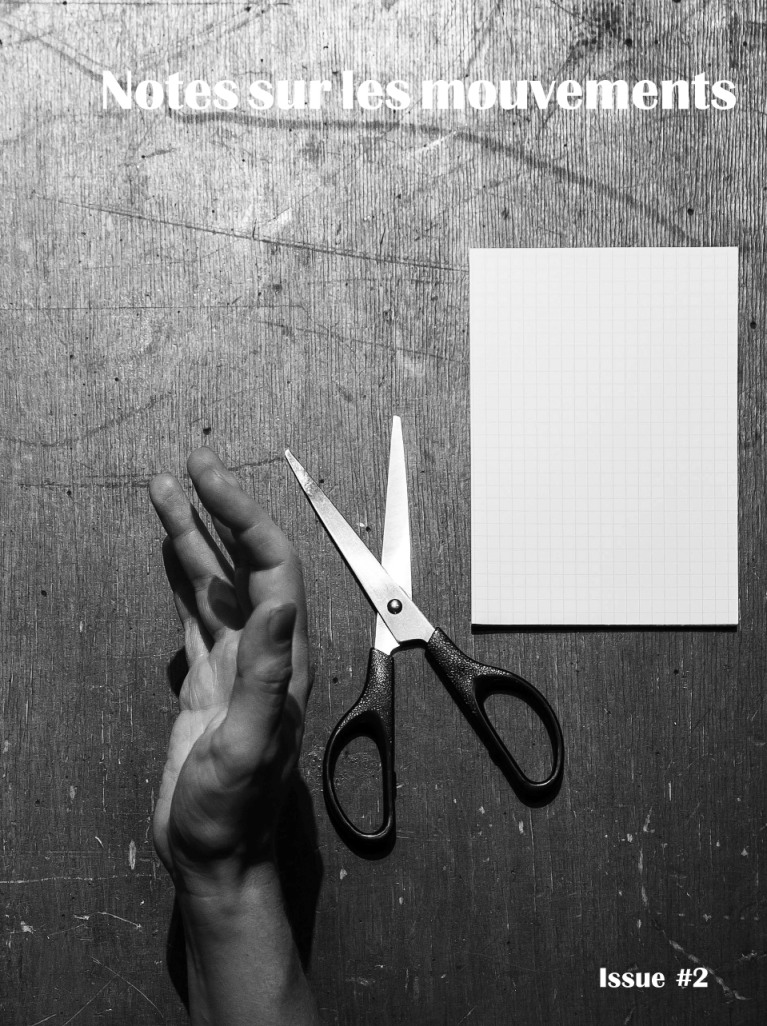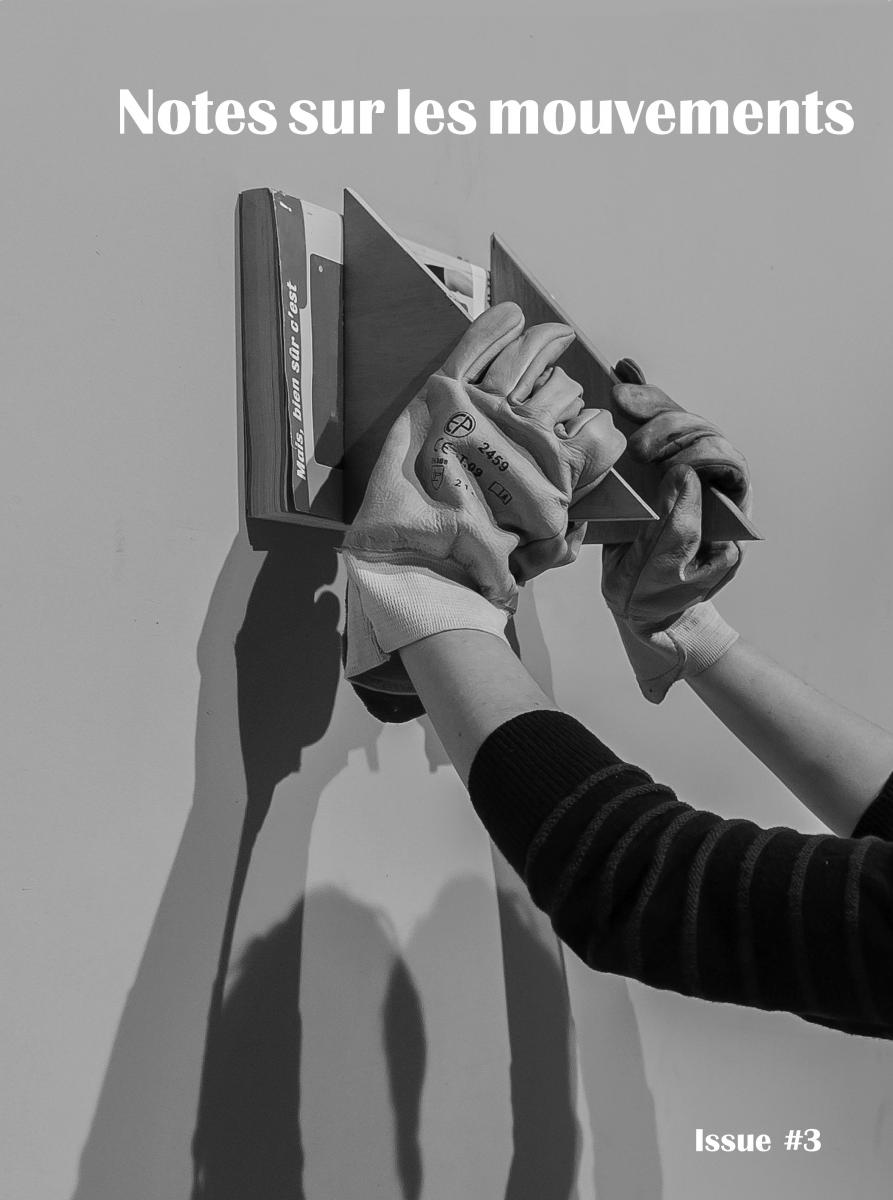During her residency at Les Laboratoires, Romana Schmalisch is editing a free publication, Notes sur les mouvements, that follows the development of the research process and production in different stages, and will present the initial thoughts, collected materials and discussions with various people during a period of one year.
Notes sur les mouvements #1 (download)
24 pages, French / English, with contributions by Jean-Marc Piquemal and Tangui Perron. September 2013.
The first issue analyses the conjunction of dance with Labour Movements of the 1930s (New Dance Group) as well as its use in the industry to enhance efficiency (Laban/Lawrence); it looks at the vague image that we have from various professions, researches the value of the performance of a work and its equivalence in the wage, and considers different forms of abstractions (notations and graphics) and training methods.
Notes sur les mouvements #2 (download)
24 pages, French / English, with contributions by Anne Querrien, Marina Vishmidt and Romana Schmalisch. March 2014.
The second issue of the journal reflects on the last two performances La Chorégraphie du travail #2 and #3 with a special focus on educational question. In an interview, sociologist Anne Querrien discusses social norms and the school system. In her text, the London-based writer Marina Vishmidt revisits an earlier essay which considered the relationship between contemporary dance and the de-materialization of labour. With reference to Romana Schmalisch’s inquiry into skills training and performance, what changes about this relationship as all employment becomes more and more of a brutal hypothesis in our post-crisis conditions?
Notes sur les mouvements #3 (download)
24 pages, French / English, with contributions by Farida Gillot, Robert Schlicht and the 2C class from the lycée Jean-Pierre Timbaud. September 2014.
This third and last issue deal with what is at stake when one learns a job, with relationships between teachers and students, with various methods of education, and with the way these systems reflect certain social norms.

